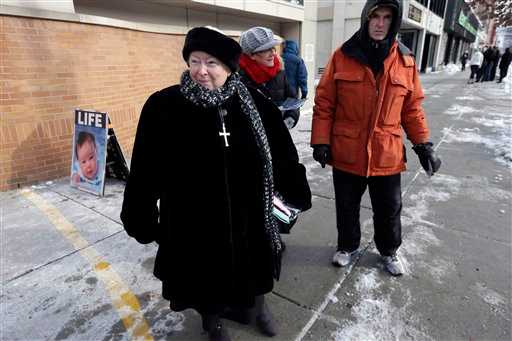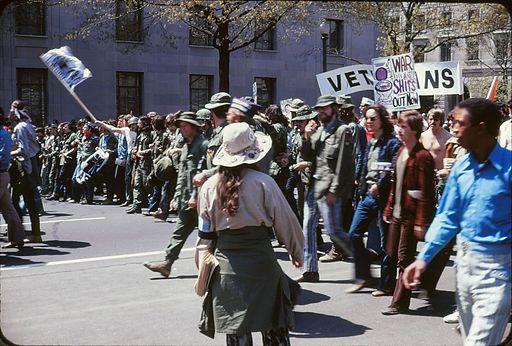The Supreme Court has ruled that government regulation of First Amendment rights must be “narrowly tailored,” which means that laws must be written precisely to place as few restrictions as possible on First Amendment liberties. Narrow tailoring is linked to the overbreadth doctrine, which the Court invokes when a law sweeps too broadly and inhibits protected, as well as unprotected, expression.
Narrowly tailored laws use the least restrictive means to achieve their purpose
To avoid overbreadth, governments must tailor laws narrowly so they are using the least restrictive means to achieve their purposes. For example, Frisby v. Schultz (1988) centered on a city ordinance that regulated picketing in residential areas. Although the ordinance was upheld as constitutional, some Supreme Court justices dissented, saying the ordinance was too broad and potentially restricted all picketing in residential streets. The majority opinion in Frisby interpreted the ordinance as applying only to picketing single residences and saw no need to strike down the ordinance or to force the city to come up with a less restrictive means of regulating residential picketing.

Narrow tailoring is not confined to strict scrutiny cases. More recently, the U.S. Supreme Court struck down a Massachusetts law regulating protests outside abortion clinics in McCullen v. Coakley (2014). The Court determined that the law was not content based and, thus, not subject to strict scrutiny. But, Chief Justice John Roberts explained that “[e]ven though the Act is content neutral, it still must be narrowly tailored to serve a significant governmental interest.” In this Dec. 17, 2013 file photo anti-abortion protester Eleanor McCullen, of Boston, left, standing at the painted edge of a buffer zone as she protests outside a Planned Parenthood location in Boston. (AP Photo/Steven Senne, used with permission from the Associated Press)
Court ensures narrow tailoring by applying strict scrutiny to free speech cases
To ensure narrow tailoring, the Court developed the standard of strict scrutiny when reviewing free speech cases. To satisfy strict scrutiny, the government must show that the law meets a compelling government interest and that the regulation is being implemented using the least restrictive means. In R.A.V. v. St. Paul (1992), the Supreme Court struck down an ordinance that banned all cross burnings. The Court held that this ordinance was not tailored narrowly and could suppress speech that the state did not have a substantial interest in suppressing.
In Gooding v. Wilson (1972), the Court held that the phrase “opprobrious language” in Georgia’s breach of the peace statute was overbroad and could encompass speech that did not incite a breach of the peace. Therefore, the government cannot place restrictions on more speech than is necessary to advance its compelling interest.
Narrow tailoring is not confined to strict scrutiny cases
Narrow tailoring is not confined to strict scrutiny cases. More recently, the U.S. Supreme Court struck down a Massachusetts law regulating protests outside abortion clinics in McCullen v. Coakley (2014). The Court determined that the law was not content based and, thus, not subject to strict scrutiny. But, Chief Justice John Roberts explained that “[e]ven though the Act is content neutral, it still must be narrowly tailored to serve a significant governmental interest.”
While narrowly tailored requires government officials to pass laws that are not too broad, it does not require that the laws be perfect. Chief Justice Roberts explained this point in upholding a restriction on judicial campaign speech in Williams-Yulee v. Florida Bar (2015). In his opinion, Roberts wrote the restriction must be narrowly tailored, but “not perfectly tailored.”
This article was originally published in 2009. Ruth Ann Strickland was a professor at Appalachian State University.

